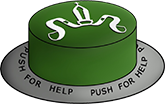Music
KS3 Music
KS3 Music
Intent
The Music curriculum is designed to be inclusive and ambitious for all, allowing students to make progress from their prior experience of music; all students will be challenged with something appropriate for their current experience level. The Music curriculum is highly practical, with knowledge of musical concepts taught as part of practical topics, all of which culminate in some form of demonstration of knowledge and skill through performing. Each unit allows students to develop their knowledge of how music works, but also gives them the time to develop their musical skills in performing and listening. This will allow students, should they wish, to pursue Music at KS4.
Curriculum sequence
|
|
Unit 1 |
Unit 2 |
Unit 3 |
Unit 4 |
|
Year 7
|
Find your voice (Texture) |
Rhythm |
Melody |
Harmony |
|
Year 8
|
Blues |
Band |
Cover Song |
Song Writing |
Developing Skills
Each unit develops knowledge and skills from the previous unit as follows:
Year 7
U1: Singing technique, texture, ensemble performing, solo performing and structure.
U2: Texture, structure, ensemble performing, solo performing, rhythm and rhythmic notation.
U3: Texture, structure, solo performing, rhythm, rhythmic notation, melody, Keyboard skills and pitch notation.
U4: Texture, structure, solo performing, rhythm, rhythmic notation, melody, Keyboard skills, pitch notation, Ukulele skills and harmony.
Year 8
All Year 8 topics make use of the skills learned in Year 7. Below are listed the additional skills which students will learn:
U1: Further evaluation, ensemble playing with instruments, rehearsing bands and improvisation.
U2: Further evaluation, ensemble playing with instruments, rehearsing bands, improvisation, Drum kit skills, Guitar Skills and Bass Guitar skills.
U3: Further evaluation, ensemble playing with instruments, rehearsing bands, improvisation, Drum kit skills, Guitar Skills, Bass Guitar skills and arrangement skills.
U4: Further evaluation, ensemble playing with instruments, rehearsing bands, improvisation, Drum kit skills, Guitar Skills, Bass Guitar skills and song writing skills.
National curriculum links
Our curriculum has been mapped against the framework of the national curriculum and all aspects are covered over the two-year course and more.
Meeting the needs of SEND and Pupil Premium students
In line with whole-school priorities, Music teachers place SEND and Pupil Premium students at the centre of our lesson planning. Students will always be given an appropriate level of challenge in all lessons and teachers will ask targeted questions to all students.
Students are given appropriate individual targets based on their performances and are always given time to rehearse and reperform after each main performance.
Retention
Our curriculum is taught to be remembered. Retrieval practice is embedded into the start of every lesson and homework.
Homework
In Key stage 3, students will receive at least one homework per unit which will be focused on retention of knowledge and understanding of the key concepts presented in each unit. This will be in the form of a quiz on Show My Homework.
Assessment
Students are formally assessed at the end of every unit in the form of a performance to the rest of the class. These performances are recorded and students will be given a target based on an assessment grid which will have been shared with students at the start of the unit.
Once students have received feedback, they will have time to practise and improve and then they will be re-recorded at which point staff will make a final judgement on their progress.
Students will be assessed on their knowledge of key concepts through the Show My Homework quiz. Students will also be assessed on their musical leadership in practice rooms.
Students will receive verbal feedback from staff every lesson whilst in their practice room.
GCSE Music
GCSE Music is a practical course covering a broad range of musical styles and activities. It is an excellent course of study in itself or as a springboard to other musical/performing activities and Higher Education. To be successful you need to have an enthusiasm for many types of music and be able to play an instrument or sing. You will also have to study eight pieces of music set by the exam board.
Course outline
The course is divided into three components, each of which is examined at the end of Year 11.
Component 1 – Performing Coursework (30% of the GCSE)
You will perform at least four minutes of music of your choice on your chosen instrument or voice. These are recorded at some point in Year 11 and at least one minute has to be you performing as part of a group.
Component 2 – Composing Coursework (30% of the GCSE)
In Year 11 you will submit two compositions, one based on a brief set by the exam board and one on an idea of your own choosing.
Component 3 – Appraising (40% of the GCSE)
You will study eight pieces of music set by the exam board grouped under the headings:
- Area of Study 1: Instrumental Music 1700 - 1820
- Area of Study 2: Vocal Music
- Area of Study 3: Music for Stage and Screen
- Area of Study 4: Fusions
The pieces range from Bach to Star Wars and in the final exam you answer short questions about extracts from these pieces played to you on a CD and write an essay about one of the pieces you have studied.
Assessment and Progression
Examination Board: Edexcelâ
Grading system:
1-9 (9 is highest)
Assessment:
1 final examination
2 coursework components
Component 1 – Performing.
Component 2 – Composing.
Component 3 – Appraising. Written examination 1hr 45 minutes
Exam questions are a mix of multiple-choice, short and long answers.
Progression to Post-16:
A-Level Music/Music Technology/Performing Arts
Future career links:
Performing
Arts Administration
Music Recording/Producing
Historical Research
Teaching




